You might have encountered similar issues when you are trying to access files from the USB drive. If the USB drive does not appear when you try to access the media files by attaching it to your Windows computer.
It would be confusing and panicking to not be able to access the media files. It no longer displays any media when you try to check in Disk Management. Now, you might be wondering what might be the issue?
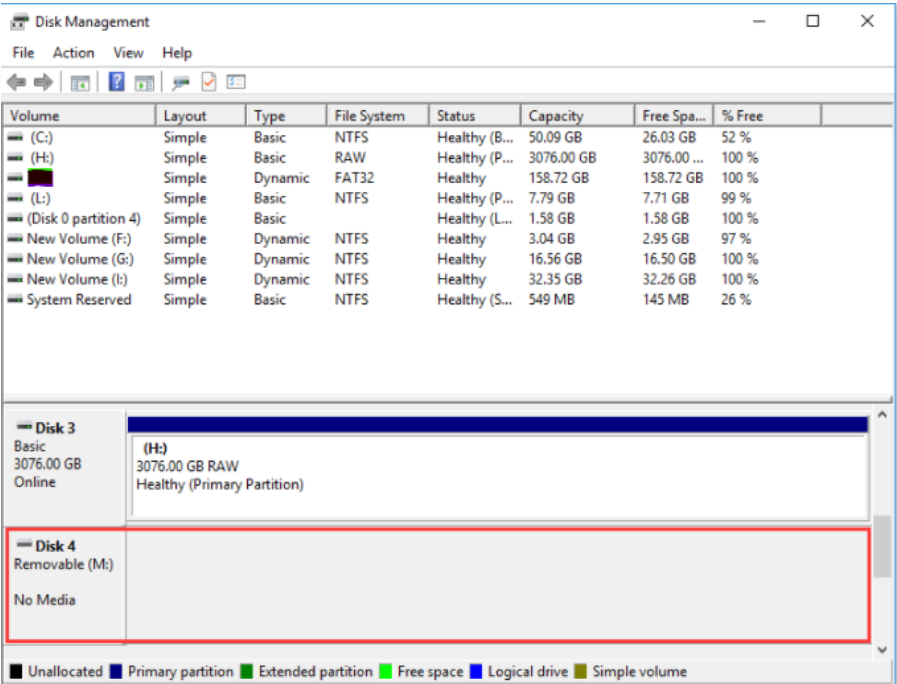
Usually, when there is a communication failure between the flash memory controller and the NAND flash memory on the drive. Then there are chances that it shows as no media as a result of it.
1. NAND flash memory has an average lifespan of roughly 5,000 program-erase cycles before it starts to malfunction, per a study by the University of California, San Diego.
2. According to a study by the semiconductor manufacturer Micron, a number of things, including exposure to high temperatures, electrical overstress, and mechanical shock, can cause NAND flash memory failures.
3. Flash memory failures were found to be the second most frequent source of data loss among Kroll Ontrack's customers in a survey they conducted, accounting for 27% of data loss cases.
1. I have a USB flash drive that is no longer recognized by my computer. Windows Disk Management and DiskPart report No Media with no storage space (0 bytes) on the drive and I cannot partition or format the USB drive. What should I do?
2. I have saved data on the storage device, but DiskPart says there is no media in the device. Can you show me how to fix this issue?
Symptoms of A USB Drive shows no Media error
In this article we will learn how to troubleshoot USB shows no media error. Before we head to fix the issue, let us understand some of the symptoms of USB says no media.
- You might receive ‘there is no media in the device’ or ‘there is no media in the specified device’.
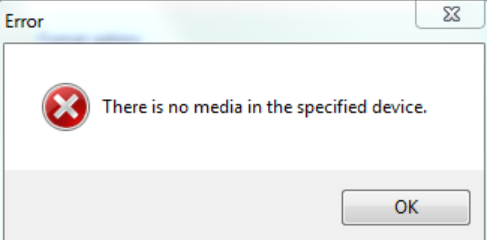
- You might receive an error ‘no Media 0B 0B’.

- Your disk might show ‘no media’ in the Disk Management.
- Disk Management does not show any volume or space.
Quick Tip: To resolve this issue, verify if your USB ports are working or not. If you have connected your USB on the front port and it did not help you fix the issue, then there may be a problem with the power source. Attempt to attach the USB drive to the motherboard's back USB port, which has a higher power supply and see if your USB drive shows up on Disk Management.
How To Fix a USB Flash Drive that says No Media?
To troubleshoot the issue, the first thing that we recommend you do is to try connecting the USB drive to a different USB port. If it doesn’t help, you can try the methods explained below one by one.
Method 1. Change Drive Letter
Sometimes changing the drive letter might help you fix the error USB shows no media. Follow the steps below to change the drive letter.
Step 1: Press Windows + X and click on Disk Management
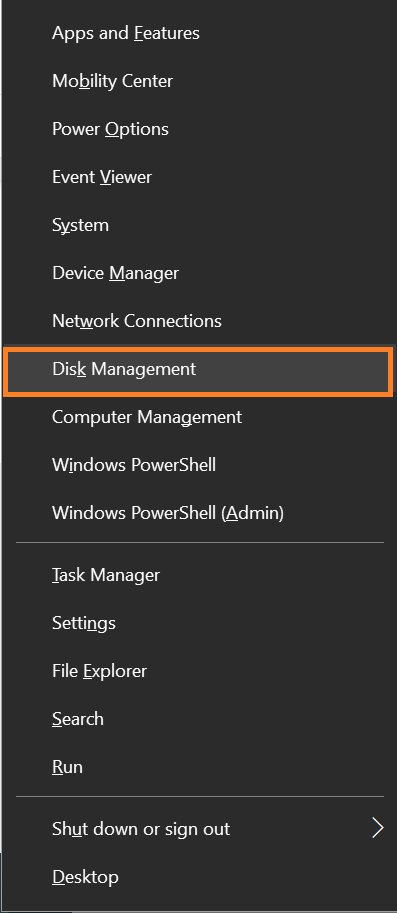
Step 2: Right-click on the USB flash drive which shows no media
Step 3: Then choose Change Drive Letter and Paths option and click on Change in the next pop-up window to set a new drive letter to the USB flash drive and hit OK.
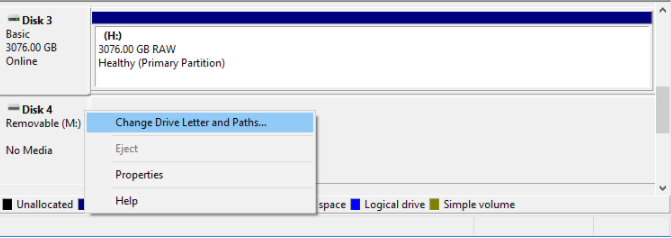
Step 4: Then click on Assign the following drive letter, assign one that you want to use and confirm your choice. This will change the drive letter of the selected drive.
Now you will be able to fix the issue, in case you are still facing the issues then you can move to the next section of the article.
Method 2: Run CHKDSK
Chkdsk is a command line interface which will help you fix minor issues on the drive. Follow the steps below to fix USB shows no media.
Step 1: Press Windows key + R to open Command Prompt. Open it as Administrator and allow its changes to your PC.
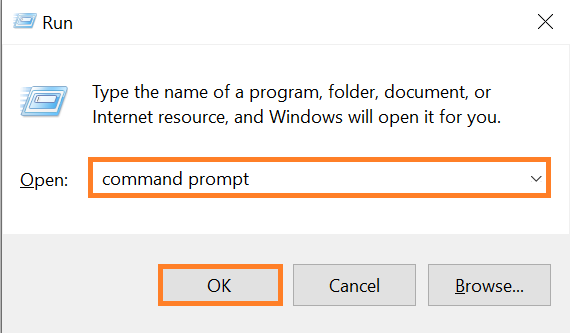
Step 2: In the Command Prompt window, type chkdsk e: /r and hit Enter. (Replace e: with the drive letter of your own USB flash drive.)
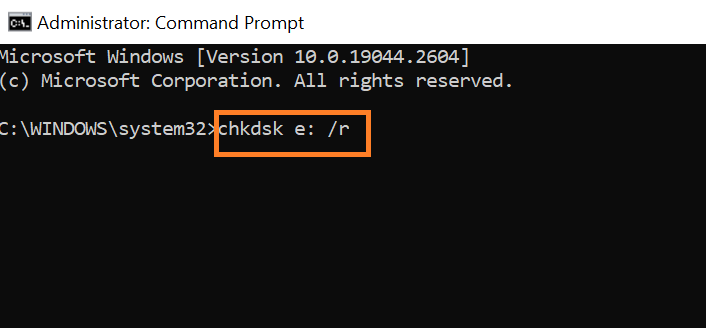
Step 3: Check if it shows up as a regular storage device on your PC or not when the progress is finished.
If the problem still isn't solved, continue with the second solution to fix the USB shows no media error in the Windows computer.
Method 3: Enable USB In Device Manager
Step 1: Right-click on the Windows icon and select Device Manager.
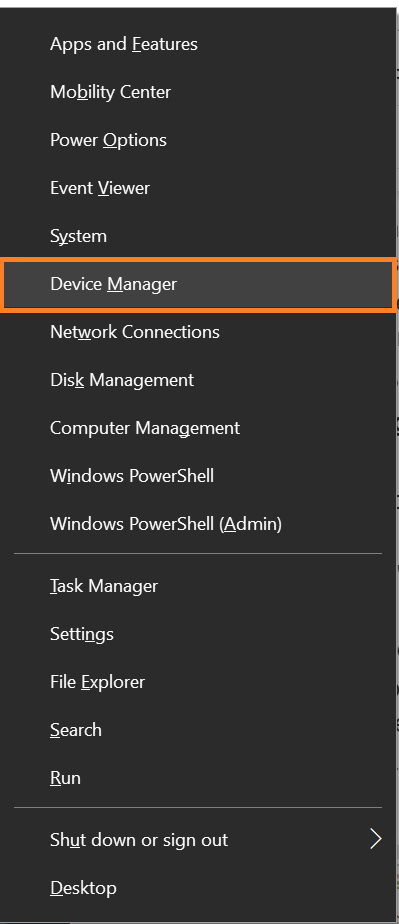
Step 2: Locate your USB flash drive under Universal Serial Bus Controller with the name USB mass storage.
Step 3: Go to the Disk Drivers and right click on your USB and click on the Uninstall Device.

Step 4: Now navigate to the Action tab and select Scan for hardware changes, this will reinstall the drivers.
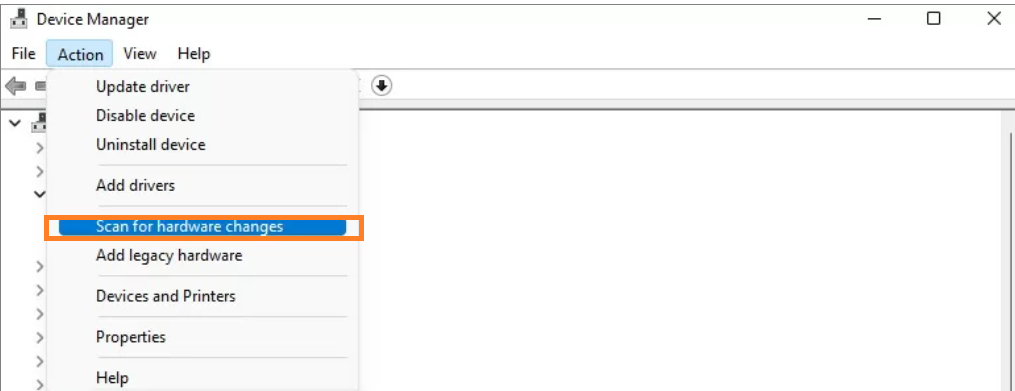
Step 5: If your drive is marked with a red mark or an arrow mark, right-click on it and select Enable. In case you can’t see the Enable option, the drive has already been marked.
You can continue checking the Disk Drivers in Device Manager to make sure that all drives are enabled as well. In case you are still facing the issue you can move to the below method.
Method 4: Troubleshoot Hardware Issue
There is a chance it could be a hardware issue. Connect your USB drive and run the hardware troubleshooter by following the steps below to fix the error ‘there is no media in the specified device’.
Step 1: Go to your Search Bar and type Control Panel.

Step 2: Go to View by and select small icons.
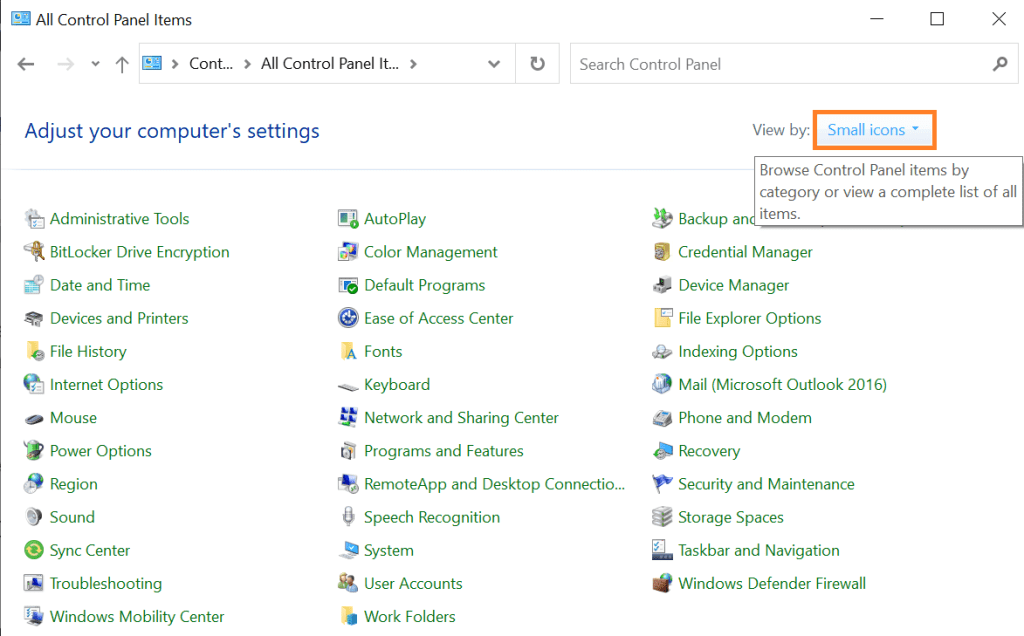
Step 3: Go to Troubleshooting and select the Hardware & Sound and then choose Configure a device.
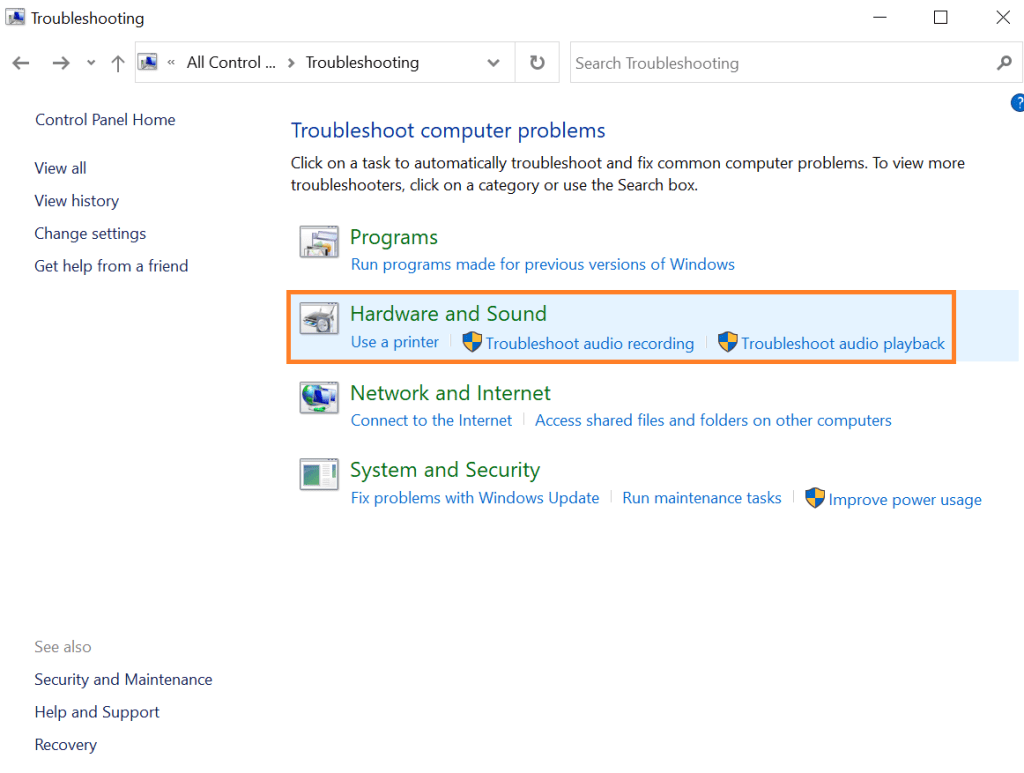
If there are any hardware issues, the tool will fix them for you. If the issue still persists, you will have to format your drive. Formatting, however, deletes all data on the drive and prepares it for use. Hence it is required to take a backup or recover data using the USB recovery tool by Remo. You can recover data from the USB drive that is showing no media error and then proceed to format your USB drive.
Method 5: Recover data from USB shows no Media using Remo Recover
To recover data from a USB showing no media in Disk Management, utilize Remo Recover tool. This tool is built with a deep scan engine that scans every sector of the drive to get back the data from the USB, showing ‘please insert a disk into removable disk no media’. The tool is compatible with USB drives of various brands.
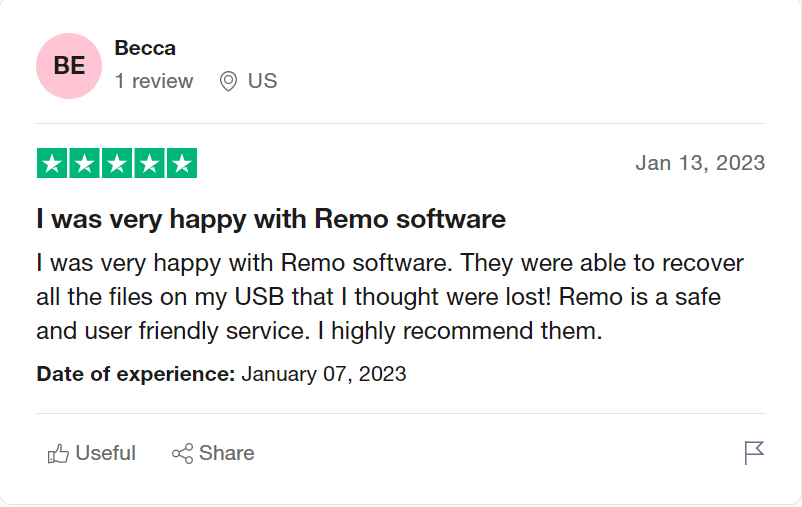
Steps to Recover Data from USB Drive Saying No Media In Disk Management Error
Step 1: Download and install the Remo USB Drive Recovery software on your system and connect your USB drive to it.
Step 2: Launch the software, and from the main screen select the drive from where you want to recover data and click on the Scan option.
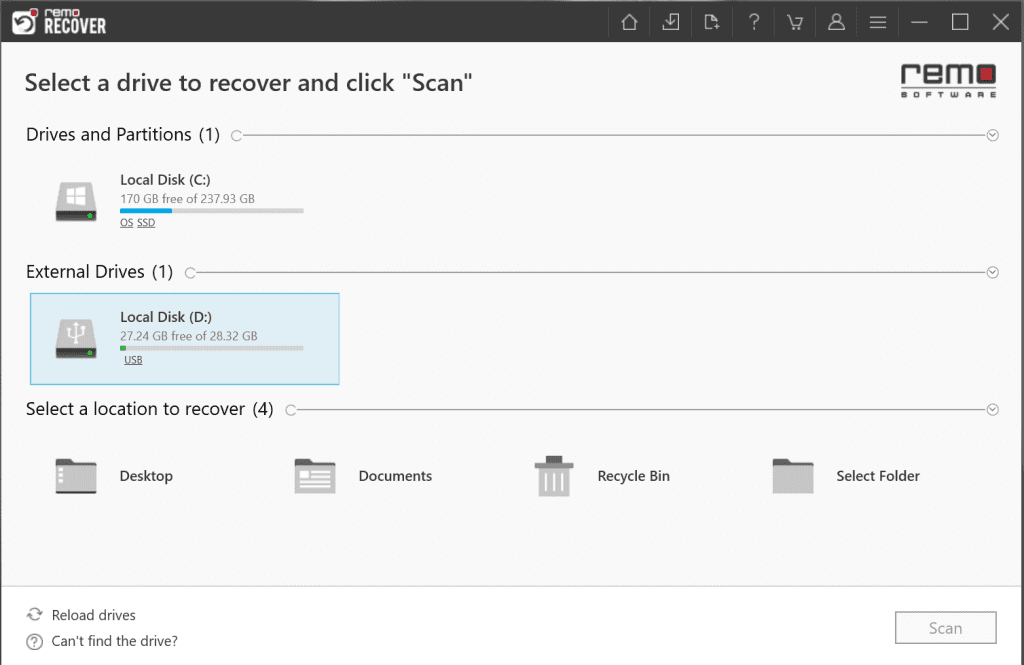
Step 3: If you are unable to find the drive then click on the option Can’t find the drive? option
Step 4: Once the files are recovered you can double click on it to Preview the files.
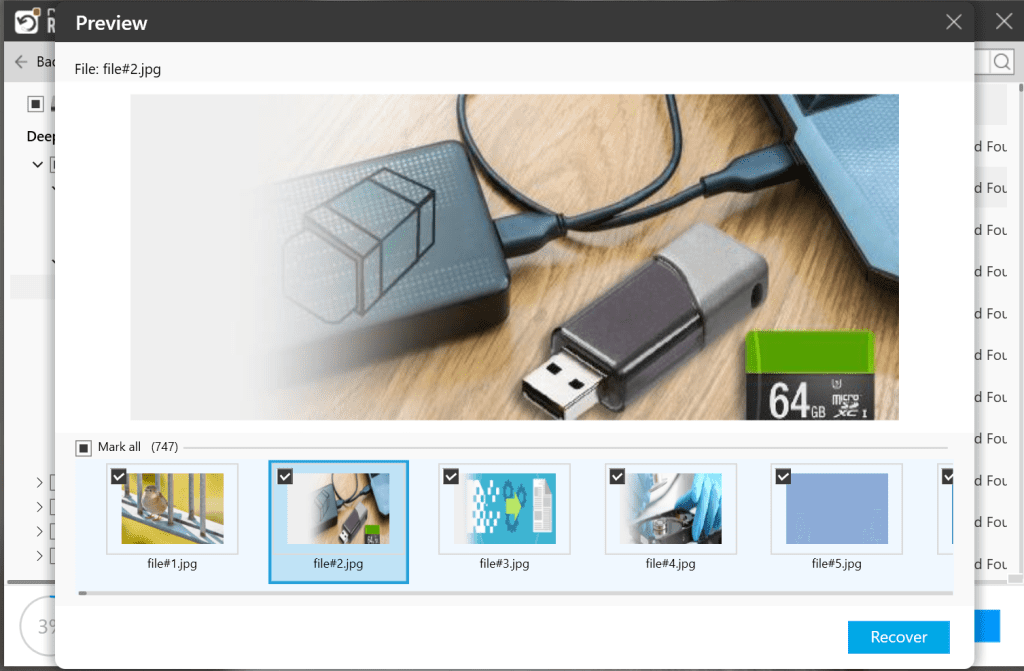
Step 5: Finally, select the files which you want to save and click on the Recover option.
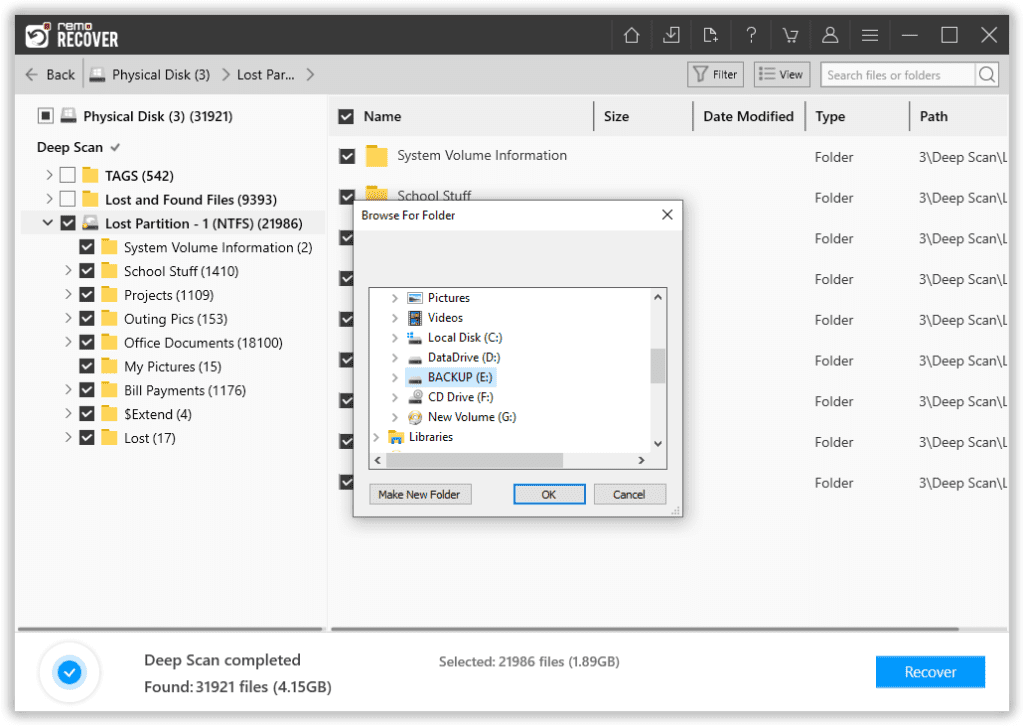
Method 6: Format the USB flash drive
Formatting the USB drive will help you fix the error "no media". Follow the steps below to format the USB drive.
Step 1: Go to the Search Bar and type Disk Management.
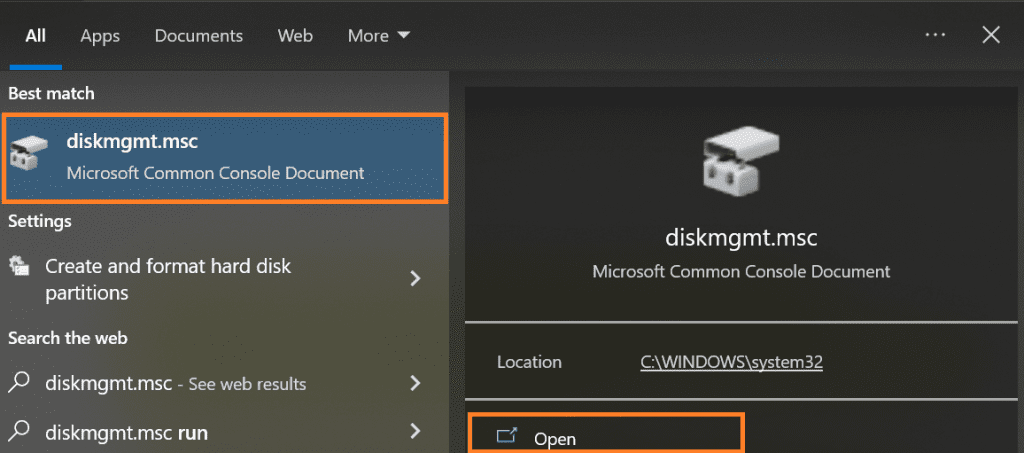
Step 2: Now go to your USB drive and right click on it.
Step 3: Right-click on your USB drive and select the Format option.
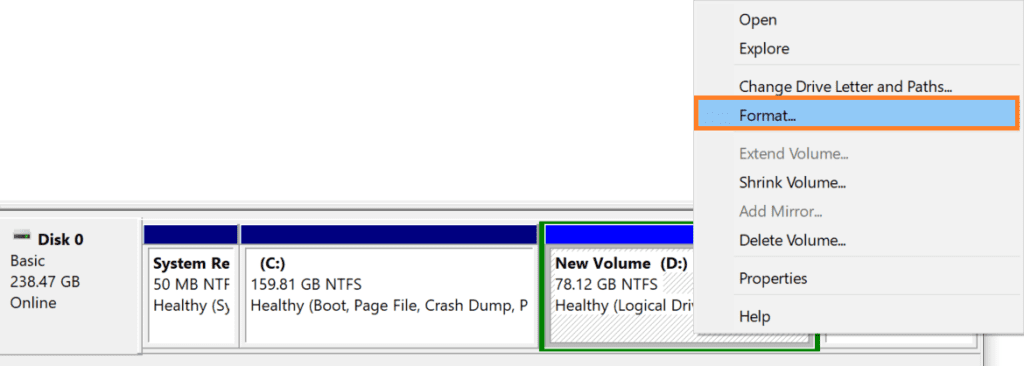
Step 4: You can choose the file system which you want to format your USB with and select the drive letter and check the box with Quick Format option.

Final Words:
I hope this article helped you fix the error ‘USB showing 0 bytes, no media’. It is advised to recover the data safely using recommended data recovery tools like Remo Recover. In case your USB drive is severely damaged then we recommend you to contact data recovery services. Do share the article with your colleagues and comment down below if you have any queries.
Frequently Asked Questions:
Disk Management may display a USB drive as "No Disk" for a variety of reasons. A faulty or incompatible file system, driver problems, physical damage to the USB drive, or an incorrectly assigned drive letter are few examples of potential causes.
The message "No Media" means that the USB drive is not picking up any memory or storage media. This may occur if the USB drive has physical damage or if the internal memory chip has failed. In certain circumstances, data recovery may be more difficult, and you might need to contact the data recovery service team.
Yes, a malware or virus infection has the potential to cause the "No Disk" problem. Malicious software can damage the file system or change the disk's partition information, preventing the operating system from recognising the drive. It is advised to perform a complete antivirus scan on both your PC and USB drive.